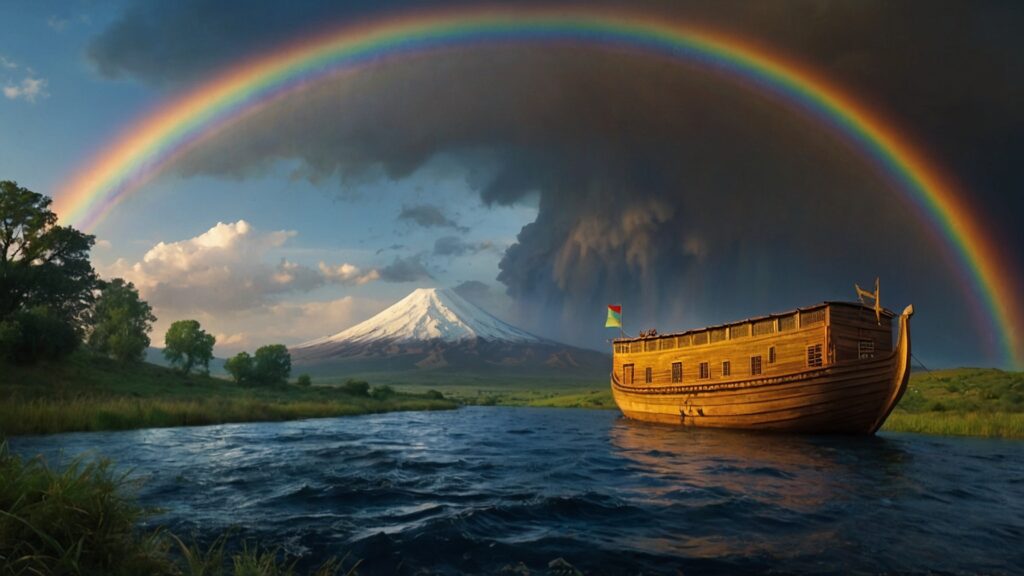Adverts
The story of Noah's Ark is one of the most iconic and enigmatic narratives found in the Bible. Told in the book of Genesis, it tells the story of Noah, his family and the animals who were saved from a cataclysmic flood through the construction of a huge ark.
Let's dive into this fascinating story, discussing its roots, the research surrounding its possible veracity, and its meaning as a timeless metaphor.
Adverts
The Saga of Noah: A Journey of Faith and Survival

According to the Bible, Noah was chosen by God to build an ark and save his family and a pair of every animal species on Earth from a flood that would devastate the world. He followed God's instructions meticulously, building the ark according to God's specifications and gathering the animals before the flood began.
Adverts
The flood lasted for forty days and forty nights, during which the ark floated on the waters, protecting Noah, his family, and the animals from the cataclysm that destroyed the Earth. After the waters receded, the ark came to rest on Mount Ararat, and Noah and the animals were released to repopulate the Earth.
Research and Exploration: In Search of the Lost Ark
Over the centuries, explorers, archaeologists, and researchers have searched for evidence of Noah's Ark and its possible location on Mount Ararat in Turkey. Reported sightings and accounts suggest that the ark may have been sighted at different times in history, but no conclusive evidence has been found to date.
Recent archaeological and technological expeditions have used satellite imagery, drones and high-tech scanning equipment to investigate the Mount Ararat region in search of traces of the ark. Although some promising discoveries have been made, the true identity of Noah's Ark remains shrouded in mystery and speculation.
Metaphor and Meaning: Beyond the Literality of History

In addition to its literal interpretation, the story of Noah's Ark carries deep layers of symbolic and metaphorical meaning. Many scholars and theologians view the ark as a symbol of salvation, representing divine protection and the possibility of spiritual renewal in times of adversity.
The story of Noah’s Ark is also seen as a parable about the importance of obedience to God, unwavering faith, and caring for God’s creation. It reminds us of the human responsibility to preserve and protect the environment and all life forms that share the planet with us.
Conclusion: Reflections on Noah's Ark and its Continuing Relevance
As we contemplate the story of Noah’s Ark, we are challenged to consider both its historical and spiritual implications. Regardless of its literal veracity, the narrative of Noah’s Ark continues to resonate through the ages, inspiring us to reflect on our relationship with God, nature, and each other.
May we find in the troubled waters of Noah’s story and in the promise of the rainbow that followed a message of hope and renewal. May we learn from Noah’s courage and faith, and strive to be good stewards of the Earth and all its creatures.




